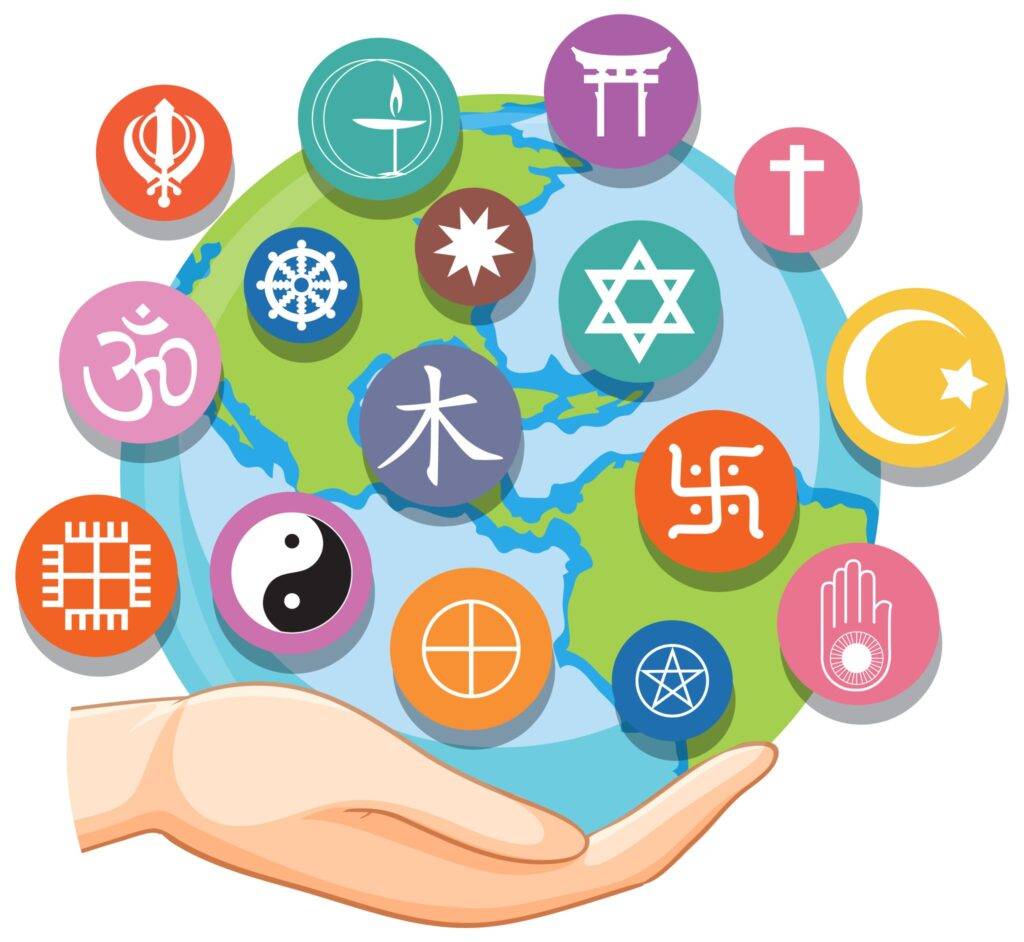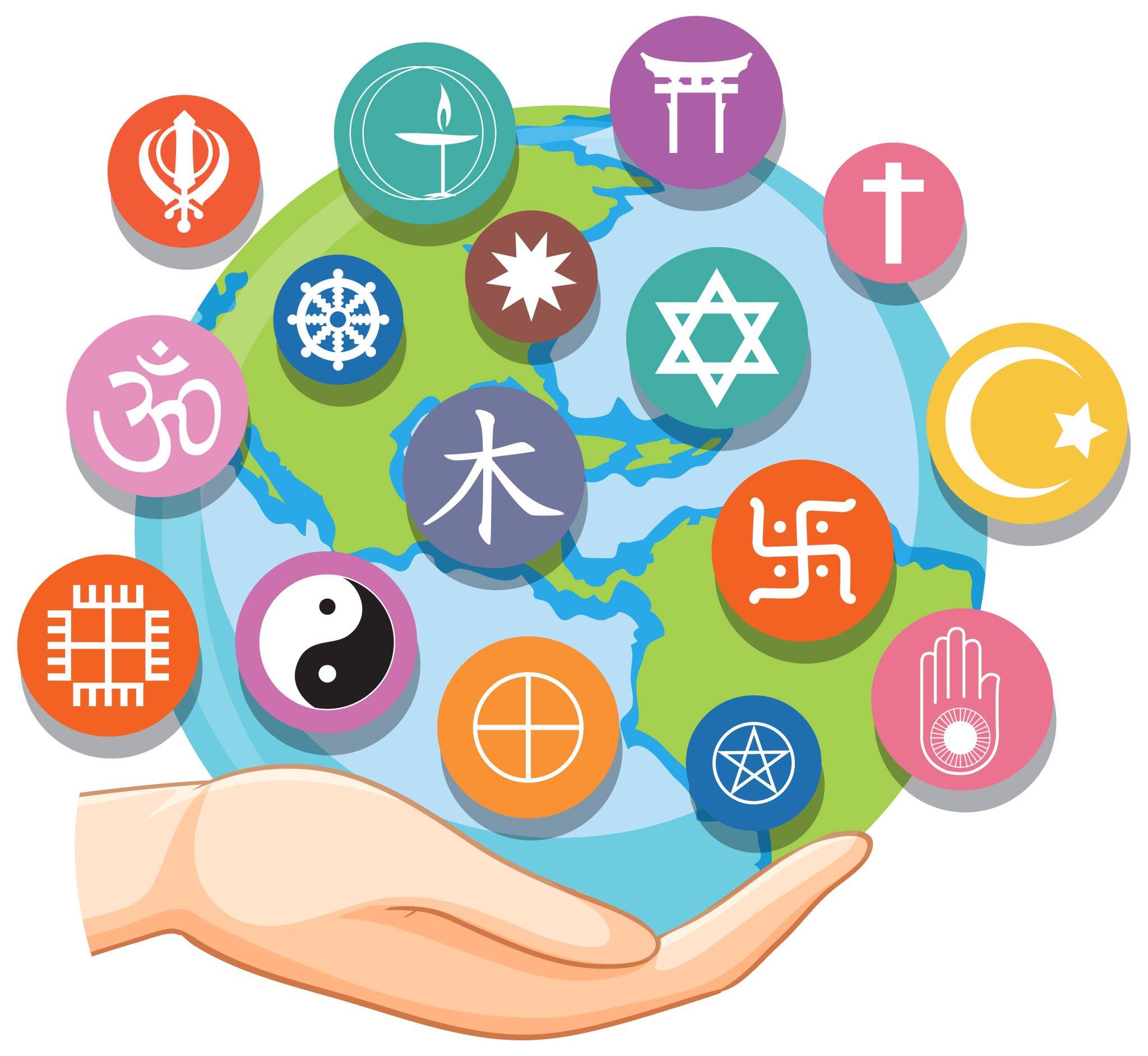In our diverse and multicultural world, religion plays a significant role in shaping the identities and policies of various nations. Religion based countries, where a particular faith significantly influences or dictates government policies and societal norms, are prevalent. This article delves into some prominent religion based countries and explores the intriguing question of why there is no Hindu-based country in the world.
Religion Based Countries

Prominent Religion Based Countries
- Saudi Arabia (Islam)
- Overview: Saudi Arabia is one of the most well-known examples of a religion based country. It is an Islamic state where the Quran and Sunnah (traditions of the Prophet Muhammad) are the constitution.
- Influence: Islamic law (Sharia) governs all aspects of life, including legal, political, and social matters. The country is also home to Islam’s two holiest cities, Mecca and Medina.
- Vatican City (Christianity)
- Overview: Vatican City is the epicenter of the Roman Catholic Church and the residence of the Pope.
- Influence: As an ecclesiastical state, Vatican City is governed by the Pope and serves as the spiritual and administrative headquarters of the Catholic Church, influencing millions of Catholics worldwide.
- Israel (Judaism)
- Overview: Israel was established as a Jewish state in 1948, with Judaism playing a central role in its cultural and political identity.
- Influence: While Israel is a democratic state, Jewish religious laws and traditions significantly influence its legal and social frameworks. The Law of Return, for example, grants Jewish people worldwide the right to immigrate to Israel and obtain citizenship.
- Iran (Islam)
- Overview: Iran is an Islamic Republic where political and legal systems are heavily influenced by Shia Islam.
- Influence: The Supreme Leader, a religious figure, holds significant power, and Islamic law is integral to the country’s constitution and governance.
The Absence of a Hindu-Based Country
Despite Hinduism being one of the oldest and third-largest religions globally, there is no country officially recognized as a Hindu state. Several factors contribute to this unique situation:
- Secular Foundations in India:
- Diverse Society: India, home to the majority of the world’s Hindu population, chose to be a secular state post-independence. This decision was rooted in the country’s diverse religious landscape, including significant Muslim, Christian, Sikh, and other religious communities.
- Constitutional Secularism: India’s constitution enshrines secularism, ensuring that no religion is given preferential treatment. This was a deliberate move to promote unity and harmony in a diverse nation.
- Colonial Influence and Modernization:
- Historical Context: During British colonial rule, India saw the emergence of secular education and legal systems, which continued post-independence.
- Modern Nation-State Concept: The concept of a modern nation-state in India emphasized a secular identity to foster inclusiveness and national integration.
- Hinduism’s Pluralistic Nature:
- Philosophical Diversity: Hinduism is inherently diverse and pluralistic, encompassing a wide range of beliefs, practices, and deities. This incivility often contrasts with the notion of a monolithic state religion.
- Personal Path to Spirituality: Hinduism emphasizes personal spiritual paths (dharma) and individual practices over centralized religious authority, which may not align with the idea of a state religion.
- Political and Social Dynamics:
- Democratic Values: India’s democratic framework and commitment to secularism have been reinforced by its political leaders and institutions over the decades.
- Global Positioning: As a major democratic power, India’s secular stance aligns with its aspirations for global leadership and partnership in a multicultural world.
Conclusion
Religion based countries reflect the profound influence of faith on governance and society. While nations like Saudi Arabia, Vatican City, Israel, and Iran integrate religion into their state structures, the absence of a Hindu-based country underscores the unique historical, social, and philosophical context of Hinduism and India’s secular identity. This diversity enriches the global tapestry of religious and cultural landscapes, fostering mutual respect and understanding among nations.
New Kashmir: Development after Article 370
Please visit our English website Click Here
